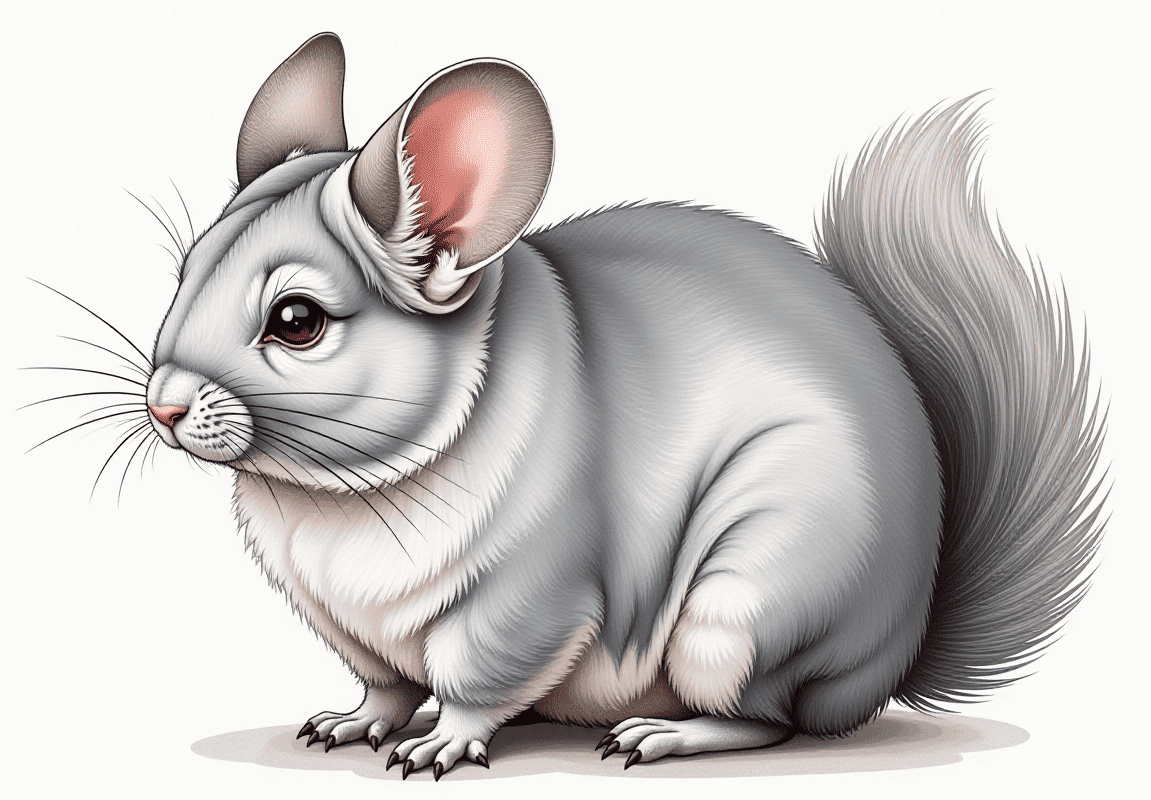Why Do Chinchillas Squeak?
If you’ve ever owned a chinchilla, you’ve probably heard them squeak at some point. These adorable little creatures use a variety of sounds to express themselves, and squeaking is one of their most common vocalizations. But why do chinchillas squeak? Understanding the reasons behind their squeaks can help you better care for your pet and strengthen your bond with them.
Chinchillas squeak for various reasons, ranging from excitement and happiness to fear and distress. Each type of squeak carries a different meaning, and as a responsible pet owner, it’s essential to recognize and interpret these vocalizations correctly. In this article, we’ll explore the different reasons behind chinchilla squeaks, how to respond to them, and what other sounds chinchillas make.
Understanding Chinchilla Communication
Chinchillas primarily communicate through a mix of sounds and body language. Unlike dogs or cats, they don’t rely on facial expressions, making their vocal cues even more important. By paying close attention to the tone, pitch, and frequency of their squeaks, you can gain insights into their emotions and well-being.
Squeaks can indicate joy, annoyance, warning signals, or even pain. Recognizing these variations will not only help you understand your pet better but also ensure you can respond appropriately to their needs.
Common Reasons Why Chinchillas Squeak

1. Excitement or Happiness
A chinchilla may let out soft, high-pitched squeaks when they’re happy. This often happens when they anticipate a treat, enjoy playtime, or explore a new toy. If your chinchilla is bouncing around their cage and letting out light squeaks, they’re likely in a cheerful mood.
Signs of a Happy Squeak:
- Soft and short squeaks
- Accompanied by jumping or playful behavior
- Happens when expecting food or interaction
2. Seeking Attention
Chinchillas are social animals and sometimes squeak to get your attention. If they’re used to being handled or played with at certain times, they might vocalize when they want you to engage with them.
How to Respond:
- Spend some time with your chinchilla to satisfy their social needs
- Offer them a treat or toy if they seem bored
- Avoid reinforcing excessive squeaking by responding only when necessary
3. Discomfort or Annoyance
Short, sharp squeaks can indicate that your chinchilla is irritated or uncomfortable. This could happen if another chinchilla is invading their space, if they dislike being handled a certain way, or if they feel disturbed.
Common Situations That Trigger Annoyance Squeaks:
- Another chinchilla getting too close
- Being picked up when they don’t want to be
- A sudden change in their environment
4. Warning or Fear
Loud, urgent squeaks are often a warning sign. If a chinchilla feels threatened, they will make a high-pitched squeak to alert others. This behavior is more common in homes with other pets or unfamiliar visitors.
How to Handle a Fearful Chinchilla:
- Identify and remove the source of fear (e.g., loud noises, unfamiliar people, other pets)
- Speak to them softly and move slowly
- Allow them time to calm down in a quiet space
5. Pain or Distress
If your chinchilla emits prolonged, high-pitched squeaks, it may be in pain or distress. This could be due to illness, injury, or discomfort.
Signs of Pain-Related Squeaking:
- Continuous, high-pitched squeaks
- Lack of movement or unusual posture
- Loss of appetite or reluctance to interact
What to Do:
- Check for visible injuries or signs of illness
- If the squeaking persists, consult a veterinarian immediately
How to Respond to Your Chinchilla’s Squeaks

1. Observing Context
- Take note of when and where your chinchilla is squeaking
- Observe body language for additional clues
2. Providing Comfort
- If your chinchilla is scared, speak to them in a calm and gentle tone
- Avoid sudden movements that might increase their fear
3. Respecting Boundaries
- If they’re annoyed, give them space
- Avoid handling them if they are vocalizing in protest
4. Seeking Veterinary Care
- If the squeaking is persistent and seems distressing, seek professional advice
Do Chinchillas Squeak at Night?
Many chinchilla owners wonder why their pets squeak at night. Chinchillas are crepuscular, meaning they are most active during dawn and dusk. As a result, they may vocalize more during these times.
Tips to Minimize Nighttime Disturbances:
- Provide enough playtime before bedtime to help them burn off energy
- Keep their cage in a quieter part of the house
- Ensure they have enough food, water, and toys to stay occupied
Other Chinchilla Sounds and Their Meanings
1. Barking
- A loud, repetitive sound
- Usually a warning signal or sign of distress
- May indicate fear or discomfort
2. Chirping
- A softer, rhythmic sound
- Indicates excitement or contentment
- Common during playtime or bonding moments
3. Teeth Grinding
- Can indicate contentment or, in some cases, discomfort
- A relaxed chinchilla grinding their teeth is usually happy
- If accompanied by other distress signals, it may indicate pain
Conclusion
So, why do chinchillas squeak? The answer depends on their emotions and circumstances. Squeaks can signal happiness, curiosity, annoyance, fear, or even pain. By paying attention to their vocalizations and body language, you can build a stronger bond with your furry friend and ensure their well-being.
Understanding your chinchilla’s communication style is key to providing the best care possible. Whether they’re squeaking for attention, warning you of danger, or expressing excitement, knowing how to respond appropriately will help create a trusting relationship between you and your pet.
Keep listening, observing, and responding with care—and your chinchilla will appreciate it!
